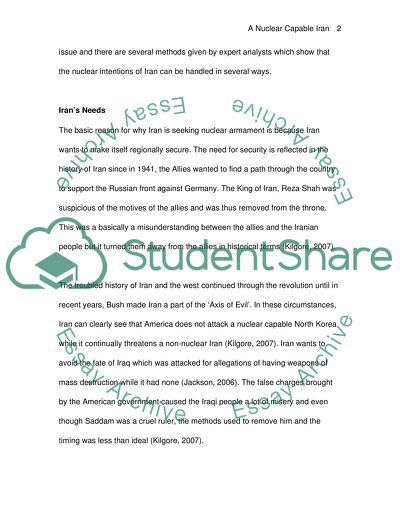Cite this document
(A Nuclear Capable Iran Term Paper Example | Topics and Well Written Essays - 1750 words, n.d.)
A Nuclear Capable Iran Term Paper Example | Topics and Well Written Essays - 1750 words. Retrieved from https://studentshare.org/politics/1545463-dealing-with-a-nuclear-iran
A Nuclear Capable Iran Term Paper Example | Topics and Well Written Essays - 1750 words. Retrieved from https://studentshare.org/politics/1545463-dealing-with-a-nuclear-iran
(A Nuclear Capable Iran Term Paper Example | Topics and Well Written Essays - 1750 Words)
A Nuclear Capable Iran Term Paper Example | Topics and Well Written Essays - 1750 Words. https://studentshare.org/politics/1545463-dealing-with-a-nuclear-iran.
A Nuclear Capable Iran Term Paper Example | Topics and Well Written Essays - 1750 Words. https://studentshare.org/politics/1545463-dealing-with-a-nuclear-iran.
“A Nuclear Capable Iran Term Paper Example | Topics and Well Written Essays - 1750 Words”. https://studentshare.org/politics/1545463-dealing-with-a-nuclear-iran.


